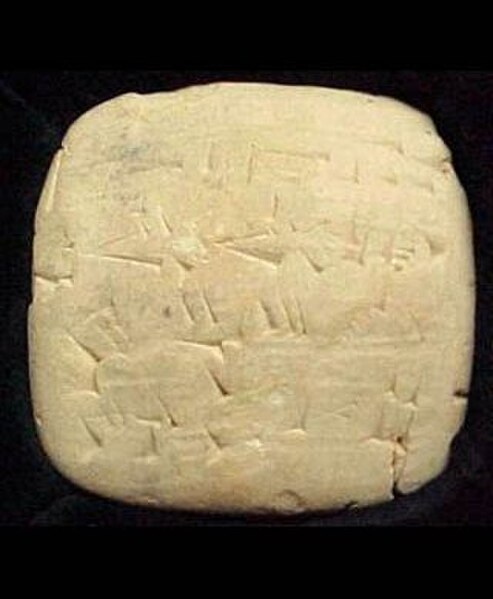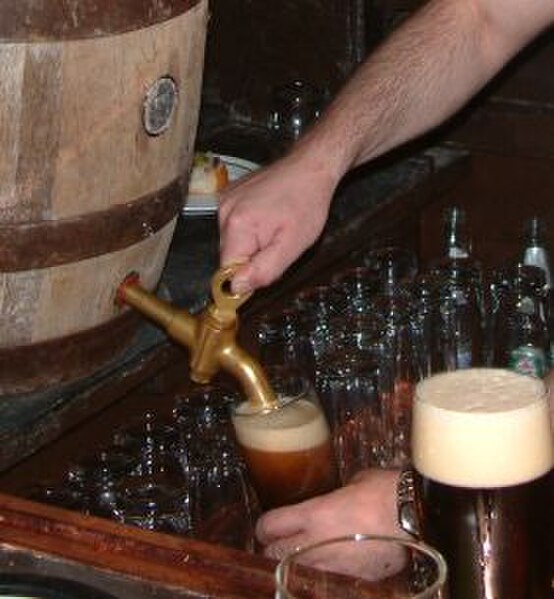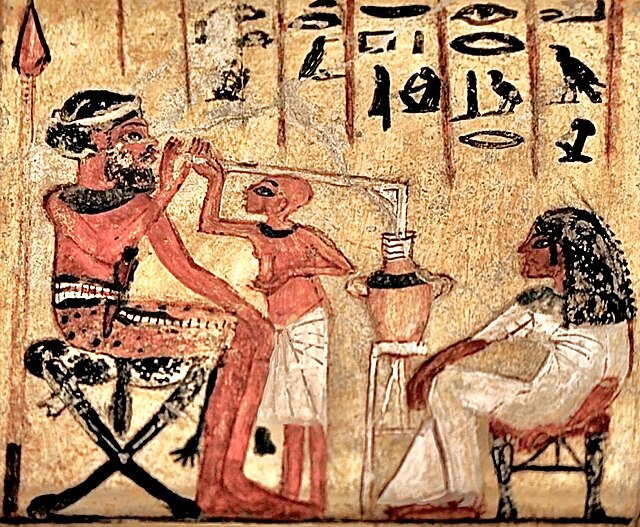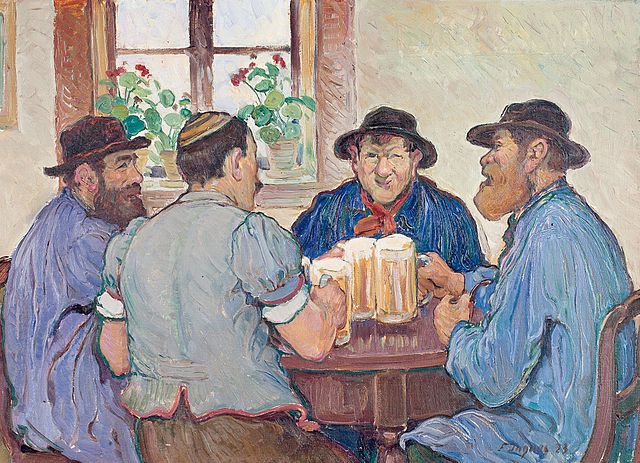Brewing is the production of beer by steeping a starch source in water and fermenting the resulting sweet liquid with yeast. It may be done in a brewery by a commercial brewer, at home by a homebrewer, or communally. Brewing has taken place since around the 6th millennium BC, and archaeological evidence suggests that emerging civilizations, including ancient Egypt, China, and Mesopotamia, brewed beer. Since the nineteenth century the brewing industry has been part of most western economies.
The Alulu beer receipt records a purchase of "best" beer from a brewer, c. 2050 BC from the Sumerian city of Umma in Mesopotamia (ancient Iraq).
Malted barley before kilning or roasting
Hop cone grown in a hop field, Hallertau, Germany
A mash tun at the Bass Museum in Burton-upon-Trent
Beer is one of the oldest alcoholic drinks in the world, the most widely consumed, and the third most popular drink after water and tea. Beer is produced by the brewing and fermentation of starches from cereal grains—most commonly malted barley, although wheat, maize (corn), rice, and oats are also used. The fermentation of the starch sugars in the wort produces ethanol and carbonation in the beer. Most modern beer is brewed with hops, which add bitterness and other flavours and act as a natural preservative and stabilising agent. Other flavouring agents, such as gruit, herbs, or fruits, may be included or used instead of hops. In commercial brewing, natural carbonation is often replaced with forced carbonation.
Schlenkerla Rauchbier, a traditional smoked beer, being poured from a cask into a beer glass
Ancient Egyptian painting, 18th dynasty, reign of Akhenaten, c. 1300 BC, showing Syrian mercenary drinking beer through a straw. Egyptian Museum of Berlin
François Jaques: Peasants enjoying beer at pub in Fribourg (Switzerland, 1923)
Malted barley before roasting







